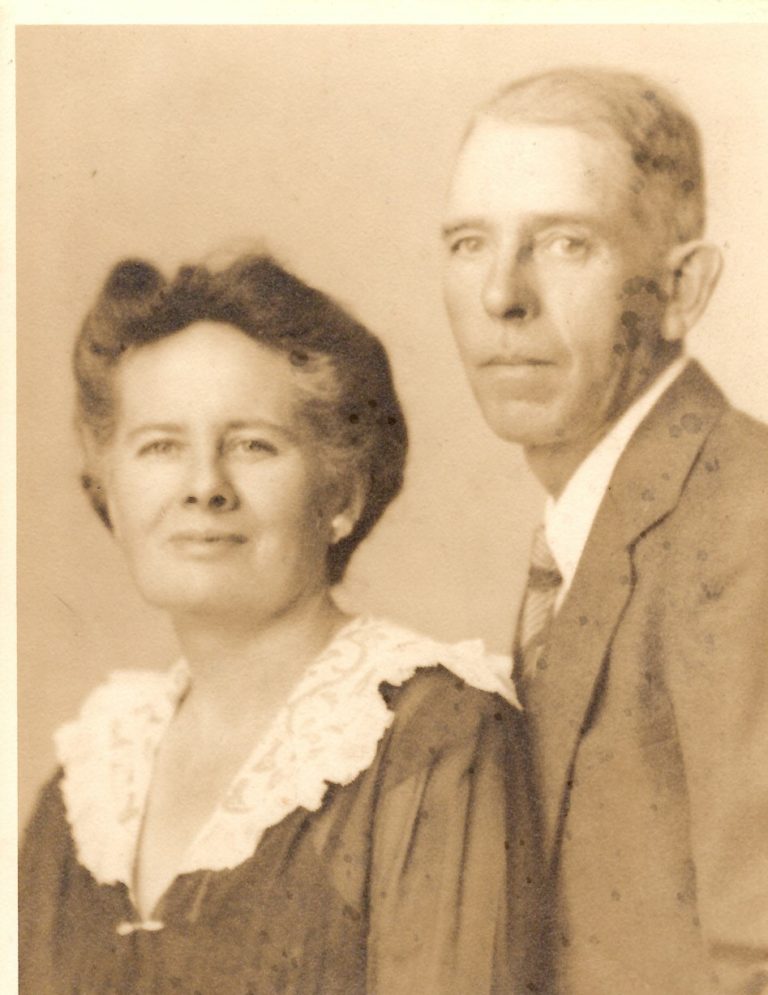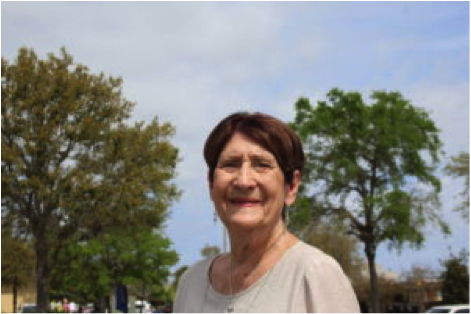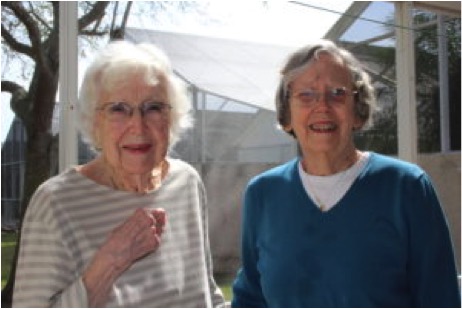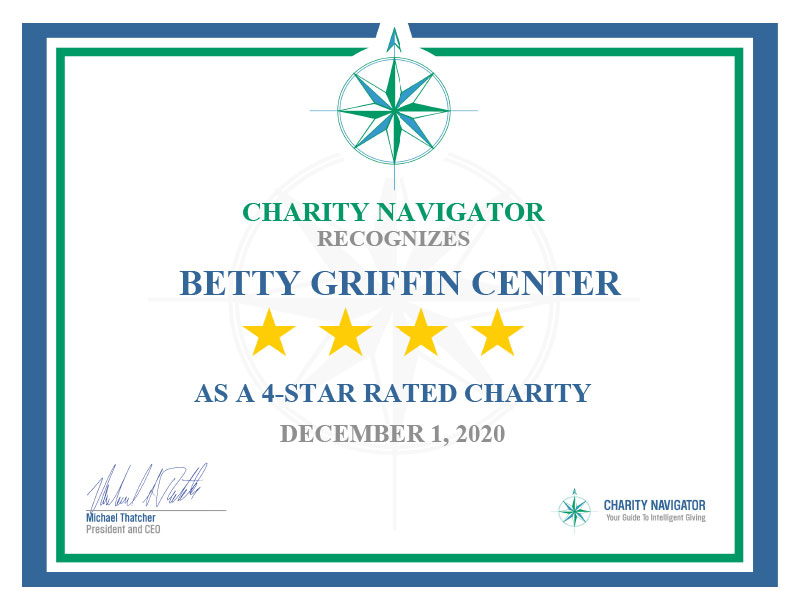For many of those years, Lippold worked alongside fellow employee Frances Case.
Case, interviewed in 2019 at the age of 96, had lived in Wisconsin where she worked as a teacher before retiring to the warmer weather in St. Augustine in 1983.
“While I was a teacher, I had also worked at a shelter workshop in Wisconsin,” she said. “I was the director of an infant stimulation program for babies up to three years old, then I worked for the state in setting up the guidelines for early-education programs.”
So, when she retired to Florida, Case said she wanted to volunteer “someplace where it would be beneficial to families,” so she first volunteered with the Betty Griffin House on the crisis line.
“I worked in crisis intervention at first, handing the calls, and was hired on as staff right away,” Case said. “They were opening up a new shelter, which opened up by the time I finished my training, and I went to work there next. Honest to gosh, the old shelter was a mess, so the new one was definitely needed.”
Case worked with the nonprofit for about a decade, then served as a volunteer for a few years before her “full” retirement.
“I think the need for the center’s services have grown as the population has increased, but I think there’s still a need for more services,” said Case, who still resides in St. Augustine. “Betty Griffin Center has done a good job, and they’ve increased their services dramatically over the years since I started, but with the population expanding the way it has, I don’t know if they’ll ever catch up.”
She commended the agency, and others, for more collaboration today than in the early years of the nonprofit.
“I think the main thing that has changed is that there’s more inter-agency involvement now, interagency awareness of domestic violence and the center works more closely with the facilities in town…they work more with the Naval Air Station in town, for example,” she said. “Al the agencies all provided services in isolation when I started.”
Although it hasn’t happened to her lately, since it’s been several years since she’s been active with the center, Case said she felt the most gratified with her work when you meet some of the shelter and program participants in the community.
“The best thing is when you meet some of the women who’ve been through the center at the grocery store, on the street or at various places in town and they’re doing okay and they’ve moved on,” she said “I think the other thing that is great is that they’ve increased the children’s services, which we started offering while I was still there.”
While she’s not actively involved, Case would like to see more funding for the organization and more shelter space for participants.
“There’s been such a dramatic increase in the population with so many people moving in here from out of state and other areas, the needs have been going up as well,” she said. “The center has been able to grow and meet those needs so far, which is absolutely heartwarming because this is such a mobile town.”’
Case says the St. Augustine area grew so quickly in the 1990s that many of the center’s new services weren’t available in the early years of the organization.
“However, today, the center needs more funds, and the shelter needs more space,” she said. “I think the center needs more apartments, because a lot of the women come into the shelter with poor credit histories and credit skills. Being able to move into affordable apartments give them a chance to get back into a more financially-responsible situation so they can take care of themselves.”
Colson, Lippold and Case all made important contributions to the Betty Griffin Center, which was founded in 1990 by concerned citizens and incorporated as the Safety Shelter of St. Johns County.
Today, Betty Griffin Center shelters more than 550 victims of domestic and sexual abuse annually, operates a 24-hour help line, provides professional counseling for victims of domestic and sexual abuse, provides age-appropriate violence prevention training and operates two thrift stores at Julington Square and Anastasia Square to assist in funding the agency’s ongoing operations.






